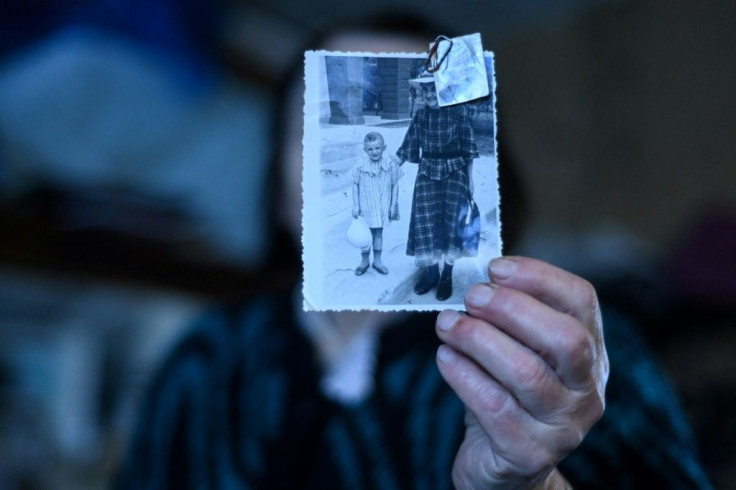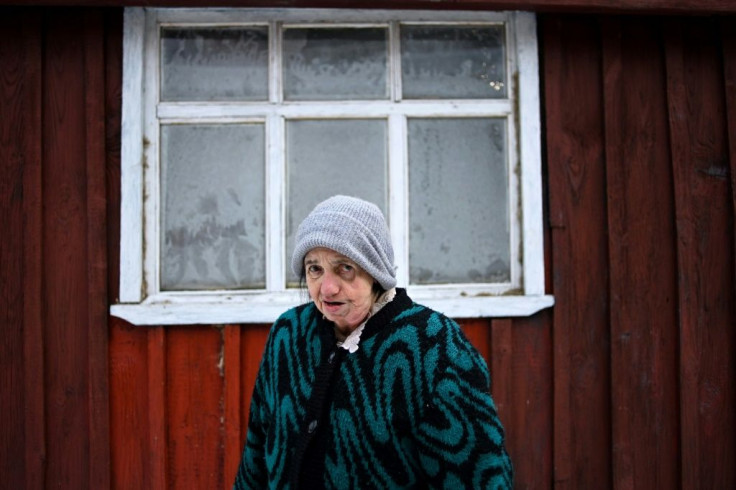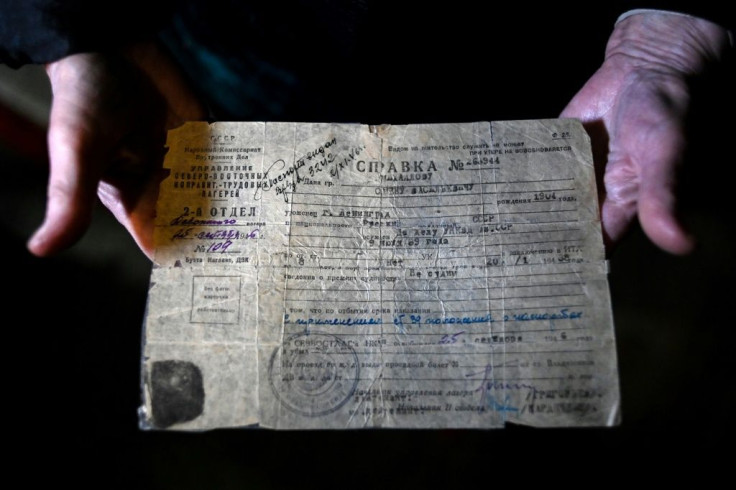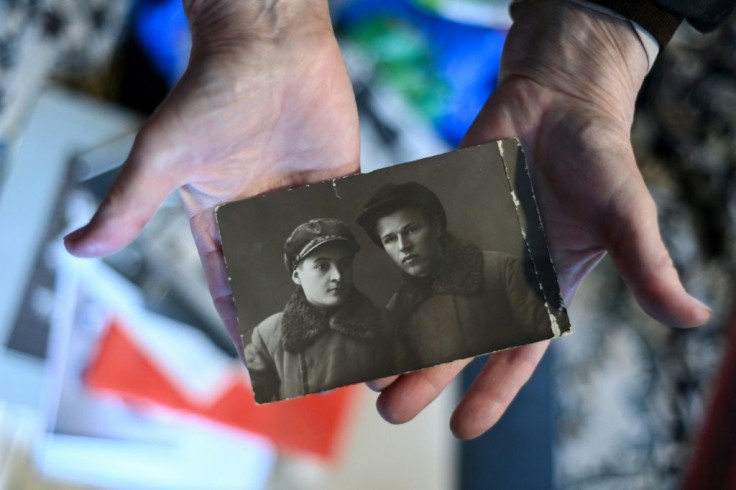Life In Exile: Children Of The Gulag Fight To Return Home
In a run-down wooden hut deep in the Russian countryside, Yelizaveta Mikhaylova has been waiting for justice for 30 years.
The daughter of a Gulag prisoner, the 72-year-old is among the ageing children of those sent to the infamous Soviet camps who were promised compensation they have yet to receive.
Under a law passed after the 1991 collapse of the Soviet Union, they are entitled to accommodation in the city from which their parents were sent into exile -- in Mikhaylova's case Moscow some 300 kilometres (185 miles) away.

"My parents wanted for us to return... that is why I am still fighting," says the retired dentist.
She has waited a long time, living with her two daughters in a 40-square-metre (430-square-foot) room in the hut near Zolotkovo, a village five hours' drive from Moscow.
It's a difficult life. They cut wood to fuel a stove that heats the room and their toilet is separated by a simple curtain.
Mikhaylova's father Semyon -- a manager in the chemicals industry -- was arrested during the mass purges set into motion by Soviet leader Joseph Stalin and accused of participating in a counter-revolutionary organisation.

After serving eight years in a camp in the Far East, Semyon was sentenced to another 25 years in Siberia, though the sentence was cut short by Stalin's death in 1953.

Restricted by a ban that did not allow former prisoners to reside within 100 kilometres (about 60 miles) of most cities, Semyon's family first settled in what is now Moldova before returning to Russia.
"It is a tragedy, a tragedy for a family," says Mikhaylova.
A few years ago, Mikhaylova arrived with a suitcase full of documents in the office of Grigory Vaypan, then a fresh graduate of Moscow State University and Harvard.
"Immediately we understood that we could not abandon this woman," says the 30-year-old human rights lawyer.

He took up her case, along with those of two other children of Gulag survivors, Alissa Meissner and Yevgeniya Shashaeva, who still live near former camps in remote areas.
They scored a first legal success in 2019, when Russia's Consitutional Court recognised that the compensation law was not being applied due its changing and near impossible conditions. The court ordered legislators to seek a solution.
A bill has since been passed in first reading in Russia's lower house State Duma, but Vaypan says it will not do enough to help Mikhaylova and others like her because it makes them register on waiting lists for social housing.
In Moscow the average wait for such a spot is almost 30 years.
The bill heads to a second reading next week and supporters of the children of Gulag hope changes will be made to help them in time.
"(They) have lived their entire lives in exile," Vaypan says, and while there is no way they can now recover the homes that belonged to their parents, they should at least be allowed to return to the cities.
Supporters say it is the least the country can do for the remaining victims of Stalinist terror -- a period of history that Russian authorities often ignore, highlighting instead moments like the Soviet Union's victory over Nazi Germany.
Most of these children of the Gulag are now in their 70s and 80s, with only about 1,500 left alive in Russia today, says Roman Romanov, the director of the Gulag Museum in Moscow.
"Their future was broken then and this break has never been repaired. They are still suffering the consequences of the repression," says Romanov, 38.
Momentum is building to finally help them. The United Nations and International Federation for Human Rights recently urged the Russian government to take action and more than 100 prominent figures signed an open letter this week demanding justice.
A petition launched by Vaypan has gathered more than more than 80,000 signatures in favour of a proper law to help Mikhaylova and others who share her fate return home.
"We've managed to draw attention to these people and show they exist," Vaypan says. "They have the right to return, the law must work".
© Copyright AFP {{Year}}. All rights reserved.





















